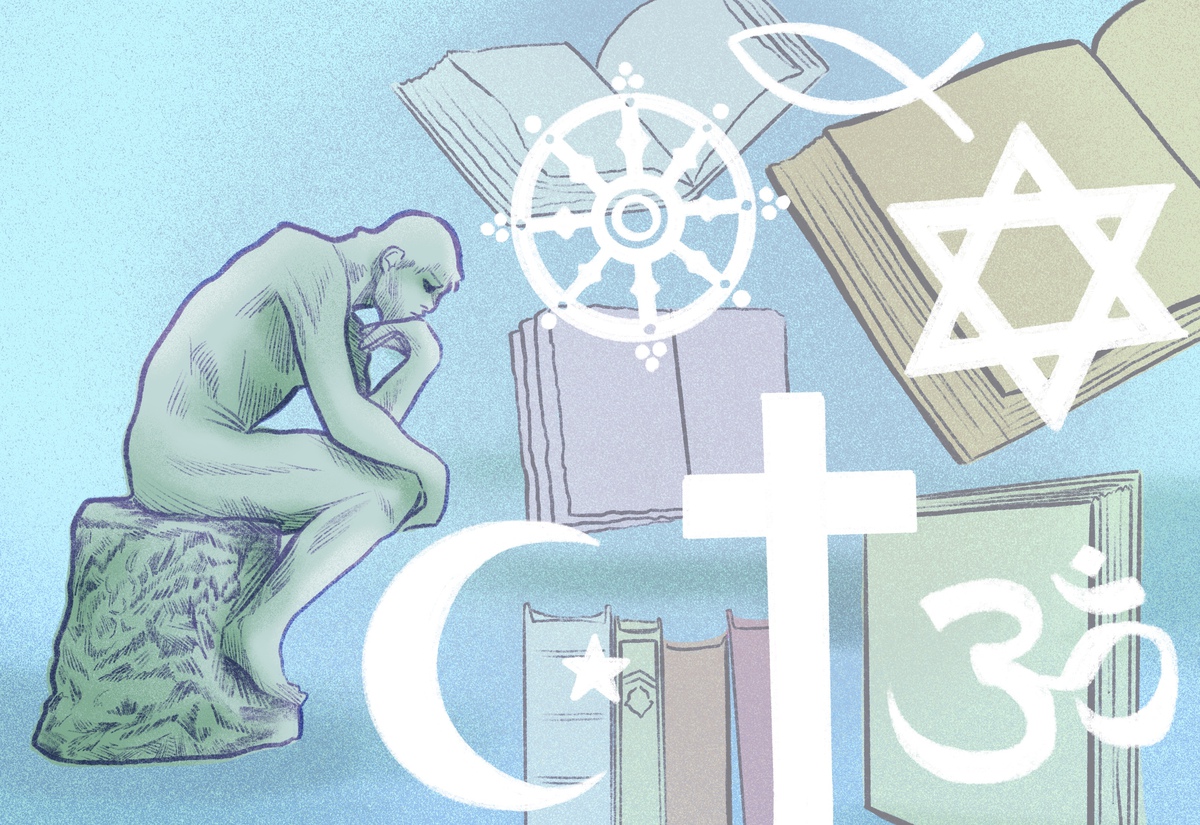I grew up immersed in the worlds of Roald Dahl and Shel Silverstein — worlds that transported me to mystical dimensions and sparked my sense of curiosity. Their novels were my first exposure to philosophical thought and ethical dilemmas, teaching me to think critically and laying the groundwork for the comprehension tools I use today.
Over time, it became rare for books to leave a similar profound impact as I began to feel like I had less to learn. However, my History of Hindu Religious Traditions class required us to dive into the Vedic texts, so for the first time, I picked up the Bhagavad Gita. As an atheist, I used to be dismissive of religious texts, which I viewed as something that provided no educational value. But as I began to read, the Gita highlighted the battlefield within my mind, helping me contextualize my self-doubt and difficulty confronting hard decisions.
Excited by my newfound learnings, I turned to the New Testament, followed by the Quran and then the Pali Canon.
I found myself shocked by the wisdom and beauty these ancient scriptures held. Viewing these books as fictitious allowed me to accept the lessons they provided. I put away my own belief system and immersed myself in another.
Reading religious texts can provide many benefits for non-believers. Not only are these texts some of the oldest books recorded in human history, but they reflect the philosophical and moral code our ancestors relied on. Religious texts shape every chasm of knowledge and are central to the origins of societies’ structure.
Philosophy professor Daniel Bonevac explained the benefit of reading religious texts.
“Even if they don’t speak to you, and you don’t find much wisdom in them, nevertheless, they’re really fundamental to the way that millions, hundreds of millions, in many cases, of people approach the world,” Bonevac said.
Religious texts are the basis of what we deem right and wrong. Our ancestors developed belief systems to guide and shape society, and understanding their values can help us become more understanding of the values of our neighbors, friends and family. Even if the texts contradict each other, which they often do, they give us an explanation for others’ morals and decisions. Philosophy professor Sahotra Sarkar discussed what religious texts can show us.
“Ethical dilemmas are not always easily resolved, and they’re very different approaches to things,” Sarkar said.
Learning to interpret religious texts can also provide many academic benefits. Sarkar mentioned the cognitive benefit of religious texts.
“To read, that is to interpret what was in the text, or their ethical message, or their normative message, rather than reading them literally … would in the long run help (students’) education a lot,” Sarkar said.
Reading religious texts can help students discern literal and figurative nuances — a skill that is essential in all academic coursework, and more importantly, application. This could range from understanding a chemistry textbook for a lab to providing context for literature and philosophy courses.
“Part of what intrigues me about all of these religious texts is the deep wisdom that I find in them,” Bonevac said.
Texts like the Bible, Upanishads and the Xunzi demonstrate new ways of thought and showcase how different religions view the world. Many of us partake in activities that allow us to appreciate various cultures. Food, fashion and art are all common vehicles we use to engage with different traditions. Religious texts can be used as another tool to do so, as they delineate the theological origins of many cultures’ customs.
As we age, we can swap out some of our novels for scriptures: they teach us lessons, help us grow and provide us with the tools to question and understand the world around us.
Kondaveeti is an English junior from Austin, Texas.















